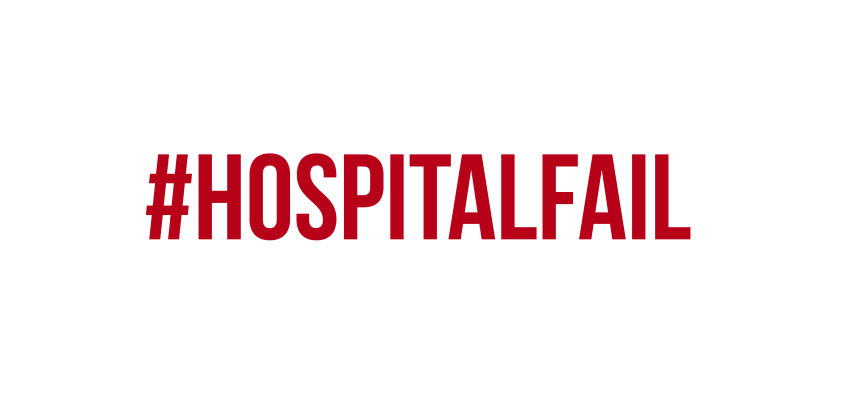NEW Oklahoma and Texas Nonprofit Hospital Scorecards from Consumers for Quality Care Show West South-Central Hospitals Failing Consumers
By Consumers for Quality Care, on March 26, 2024

For Immediate Release
March 26, 2024
Contact:
press@consumers4qualitycare.org
NEW Oklahoma and Texas Nonprofit Hospital Scorecards from Consumers for Quality Care Show West South-Central Hospitals Failing Consumers
Nonprofit hospitals in Arkansas, Louisiana, Oklahoma, and Texas are prioritizing profits over patients’ needs, overcharging patients and offering little-to-no price transparency
WASHINGTON, D.C. – Consumers for Quality Care (CQC) today released its latest Nonprofit Hospital Scorecards for Oklahoma and Texas, giving both a #HospitalFail, highlighting how nonprofit hospitals in the states are putting profits before patients.
Oklahoma and Texas join Arkansas and Louisiana nonprofit hospitals, which also received #HospitalFails, revealing that the patients in the West South-Central region are failing consumers. In these four states, nonprofit hospitals are found to be charging patients huge markups, devoting inadequate resources to charity care, and leaving consumers with mountains of medical debt.
Despite their status as tax-exempt, charitable organizations that receive hundreds of millions of dollars in tax breaks, reports from respected and credible sources such as CNN, KFF Health News, PatientRightsAdvocate, and many others indicate that nonprofit hospitals in these states operate more like big businesses hungry for profits.
“Nonprofit hospitals hold a sacred trust: to serve the health needs of the most vulnerable. Yet, too often, they prioritize profit margins over the well-being of those they pledge to serve,” said CQC Board Member Jason Resendez. “In a nation where health care access is not a privilege but a fundamental right, it is imperative that these institutions honor their charitable obligations and safeguard the dignity of every patient.”
In Arkansas, the University of Arkansas for Medical Sciences, a public nonprofit hospital, was found to have sued thousands of patients since 2019 to collect outstanding medical debts. As CNN reported, many of the patients sued by the university were its own employees.
In Louisiana, a survey of 2,000 hospitals nationwide from September 2023 to January 2024 found that only 20 of the 41 Louisiana hospitals reviewed – just 49% – had complied with federal regulations requiring all hospitals to post their prices online and make them easily accessible and searchable.
On average, in 2020, Oklahoma hospitals charged privately insured patients nearly twice what they charged Medicare patients for the same services. The Oklahoma University Medical Center, a public nonprofit hospital, was found to have charged patient markups that were more than seven times the cost of providing them care.
The Lown Institute Hospitals Index found that, based on tax filings from the fiscal year ending in 2020, Texas hospitals had a collective “fair share deficit” of $163 million. In other words, Texas’s nonprofit hospitals pocketed tax breaks that were a whopping $163 million more than what they spent on community benefits and charity care for low-income patients.
“CQC’s Nonprofit Hospital Scorecards highlight the disturbing gap between what the public expects of nonprofit hospitals and how some of these hospitals really operate,” continued Resendez. “Although the situation in these states that make up the West South-Central region is troubling, it is part of larger national trend in which some bad actors are failing to uphold their charitable missions.”
View all CQC’s Nonprofit Hospital Scorecards here. CQC will continue the Nonprofit #HospitalFail Campaign in additional states throughout the coming months. To stay informed, visit our website here.
###
ABOUT
Consumers for Quality Care (CQC), a coalition of advocates and former policymakers working to provide a voice for patients in the health care debate as they demand better care. CQC is led by a board of directors that includes the Honorable Donna Christensen, physician and former Member of Congress; Jim Manley, former senior advisor to Senators Edward Kennedy and Harry Reid; Jason Resendez, community advocate and health care strategist; and Mary L. Smith, former head of Indian Health Service.
